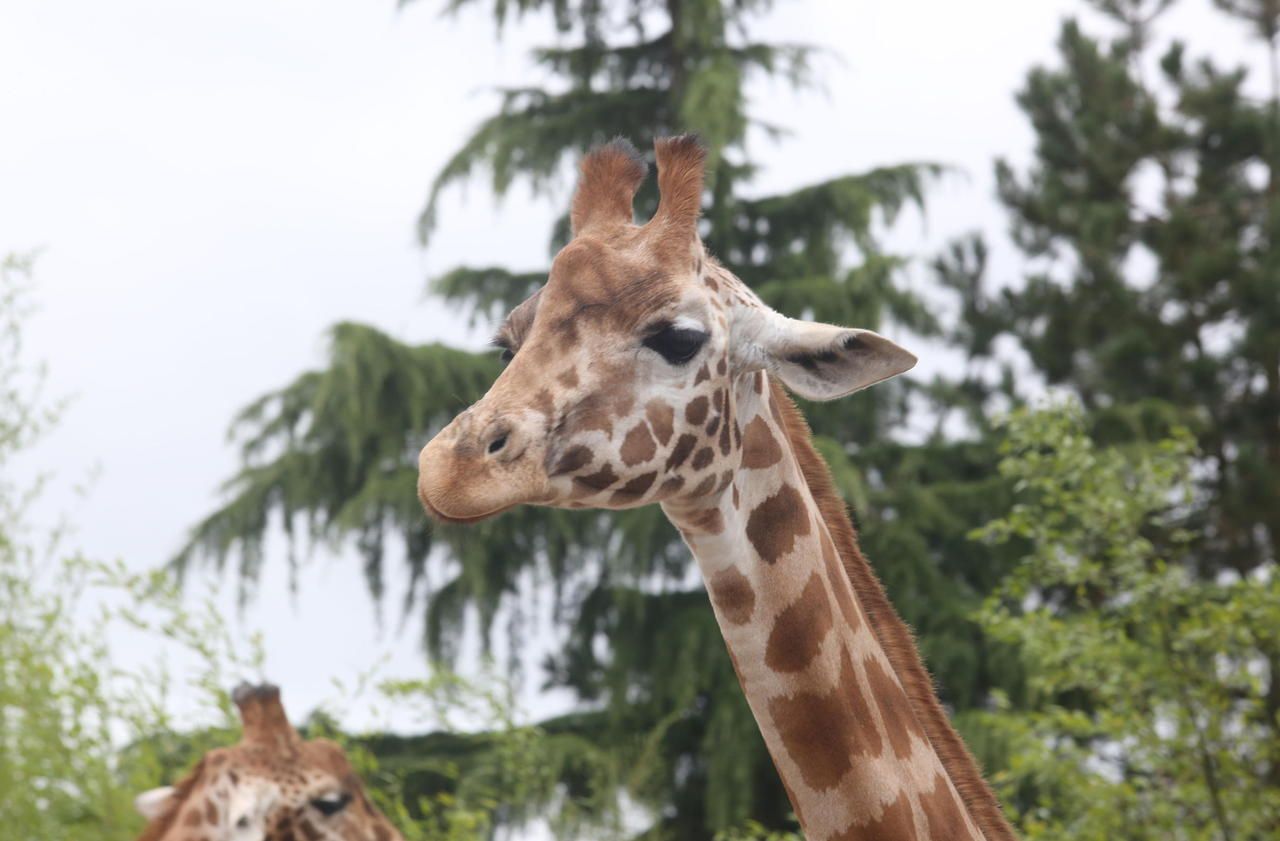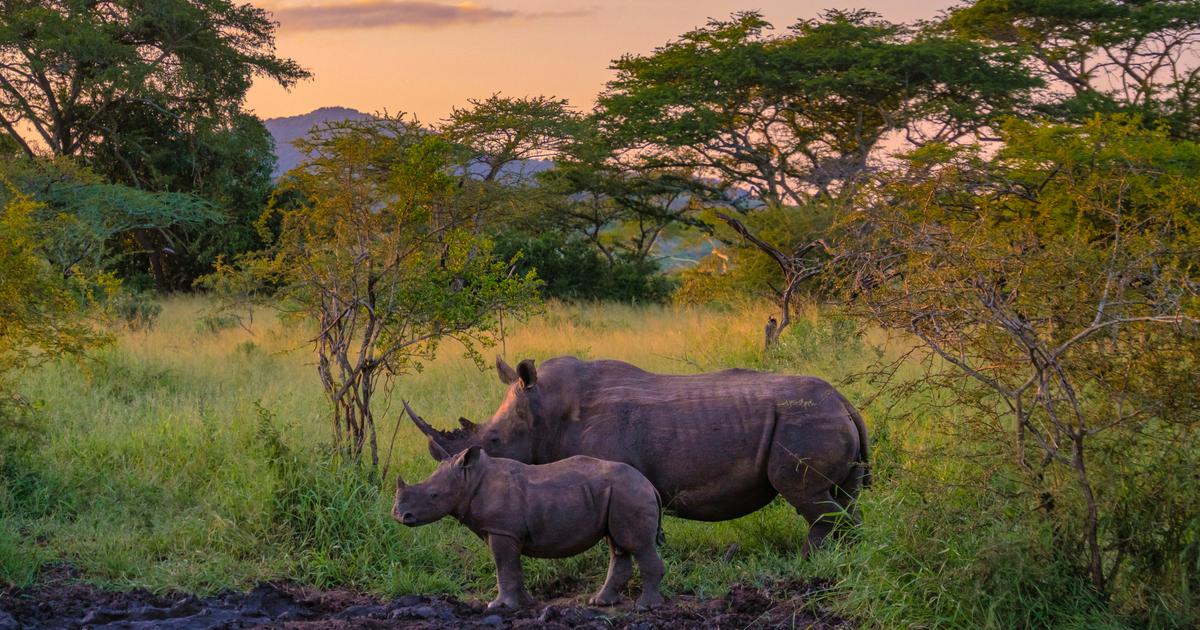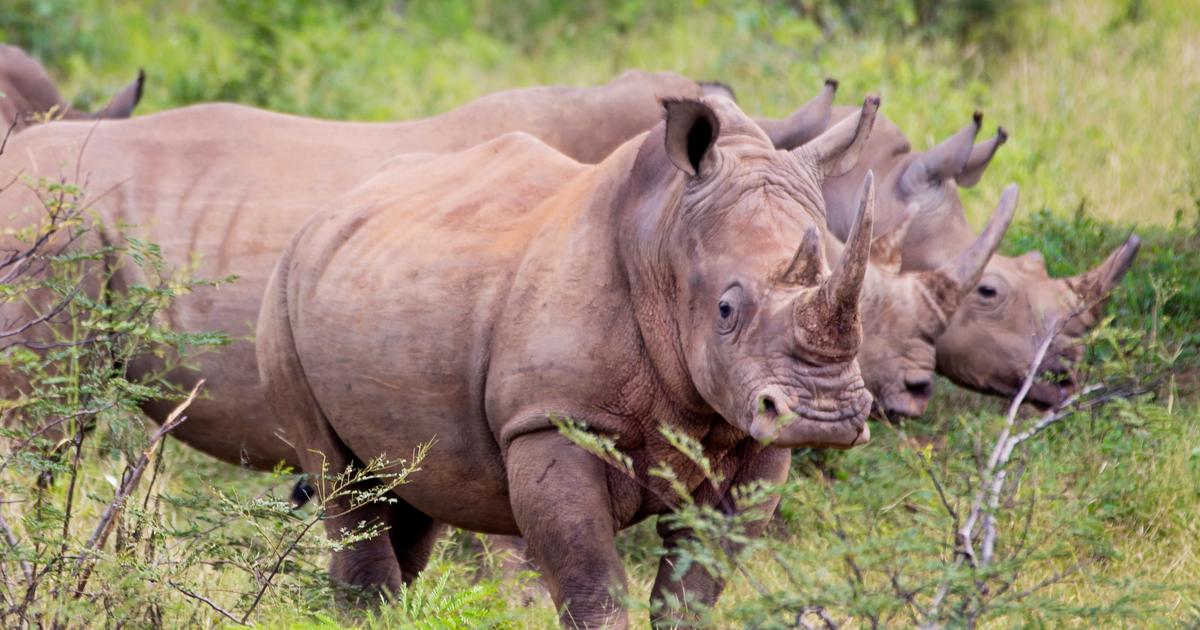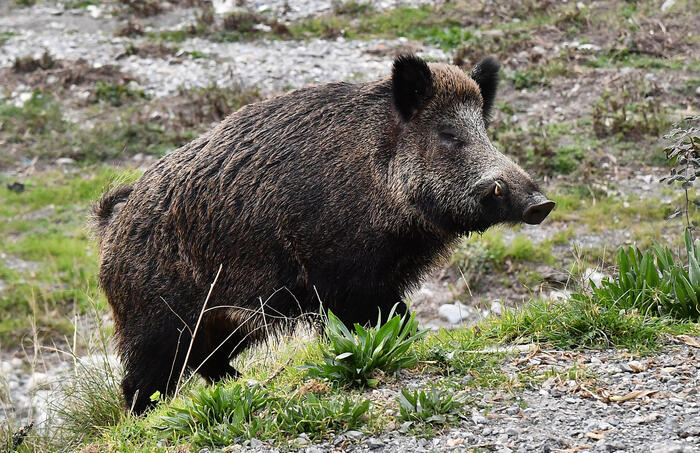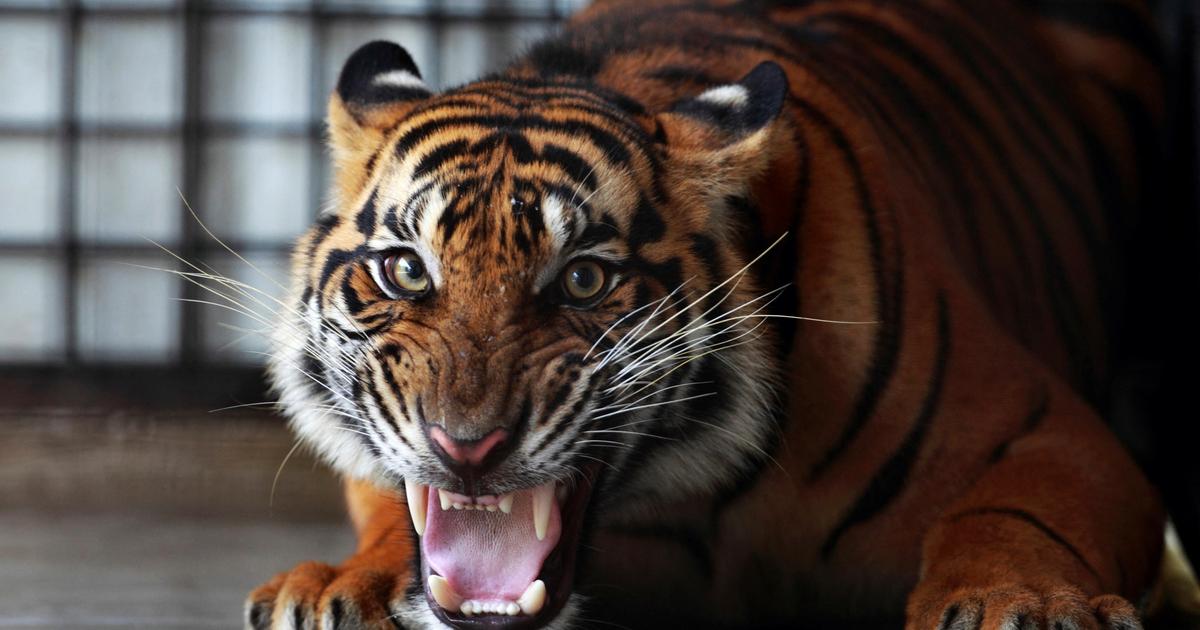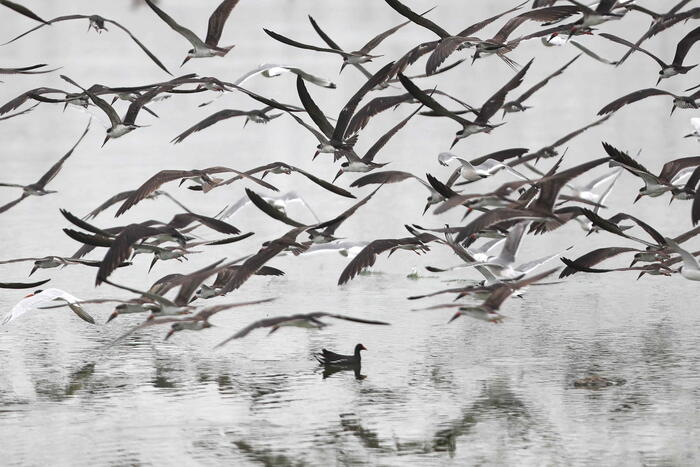Reduction in patrols, absence of tourists, police officers focused on the application of anti-Covid rules ... part of the planet having confined itself to escape the virus, conditions have become ideal for traffickers in wild animals.
For the past year, the Robin des Bois environmental association has deplored an upsurge in “local poaching”.
And while we have not finished with the barrier measures, she fears that the phenomenon will continue.
Seagulls, gulls, hawks ... riddled with lead
Three weeks after the start of confinement, in 2020, the Bird Protection League already identified several shooting victims in Charente, Gard, Hérault, Var or Haute-Savoie: a variable nozzle seriously injured by two pellets , two dead gray herons, an injured peregrine falcon and even… two killed gulls.
In June, in Vineuil (Loir-et-Cher), “walkers reported about fifty carcasses of terns, seagulls and swifts, details Robin des Bois.
Some were rotting and surrounded by a hundred cartridge cases.
The perpetrators of the carnage are wanted.
Poaching ... relaxation
"In rich countries both hit by Covid-19 and idleness, we observe poaching of relaxation, protests Charlotte Nithart, in charge of monitoring cash trafficking within the NGO.
In addition to raptors killed in France, the United Kingdom and countries of Eastern Europe, we have received reports in Canada of the deaths of six moose, killed in April, and the discovery of fifteen elk carcasses on the Vancouver Island.
The local wildlife protection officers protested even more as "in some cases people don't even take the meat."
They panic, decide it's too hard to cut up ”… then leave.
The rhino horn hunted for its anti-Covid virtues
On April 11, 2020, gunfire ripped through the curfew in Kaziranga National Park, India.
A member of the Special Rhino Protect Force has just been hit.
Two days later, six poachers are flushed out.
"They say they wanted to store rhino horn" to resell it once the confinement is lifted.
It is that a tenacious rumor then circulates among the traffickers: “The Chinese think that the horn would be good against the Covid.
The same month, in Zimbabwe, guards mourn the deaths of two white rhinos.
To this macabre list is added the disappearance of ten elephants since the beginning of the year.
Lions and buffaloes are also among the "indirect" victims of covid-19.
The Justice for Wildlife Commission
notes that poachers are taking advantage of the reduction in patrols on the ground to attack the animals.
Falcon egg thieves
Taking advantage of the stoppage of patrols in the Peak District National Park, England, peregrine falcon egg thieves have been circling the nests.
Eggs are said to have disappeared in at least three places.
“According to the authorities, thieves will hatch them before selling them,” explains Charlotte Nithart.
An adult peregrine falcon is estimated at up to $ 25,000 (21,000 euros) and falcons are particularly sought after in the Middle East.
"
Boxes full of live parrots thrown into the sea
It is not only on earth that traffickers operate.
In Costa Rica, the authorities seized at the end of May 2020 from a smuggler's warehouse 22 kg of frozen sea cucumbers and 700 giant conch shells from the eastern Pacific, the fishing of which is prohibited.
On June 1, in Cedros (Trinidad and Tobago), the Coast Guard surprised three men hurriedly throwing boxes overboard.
Inside were 20 noble macaws, 22 parrots, five green-winged amazons and peony bullfinches, all drowned.
"They would have been captured in Venezuela and the suspects intended to sell the birds on the island of Trinidad", explains the Robin Hood association.
Increasingly popular giraffe meat
At the end of May 2020, in Ijara, Kenya, two men were arrested on suspicion of leading the "giraffe cartel" in the county.
“The growing demand for giraffe meat by the wealthy in the big cities has fueled poaching of the species and it has become a thriving and lucrative business,” sighs Paul Jinaro of the Kenya Wildlife Service.
In Amboseli National Park, no less than three giraffes were poached in the space of a week last June.
A poacher was arrested with 400 kg of meat!
A month earlier, in a national park in Sri Lanka, an elephant calf was found shot dead.
"There are no more tourists to interfere with illegal hunting," said the French NGO, which quotes a local environmentalist according to which 600 wild animals are killed by poachers every day.

